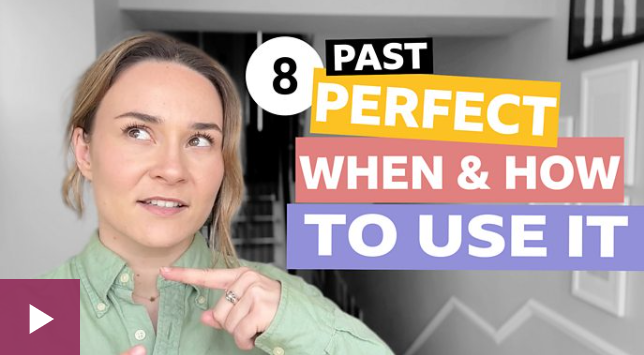USES OF PAST PERFECT
Events that happened before another past event. Combine with the past simple.
- The train had already left before we arrived at the station.
- The kids had fallen asleep by the time their parents got home.
- By the time we found our seats, the movie had already started.
Useful vocabulary for events that happened before another past event: already, before, by the time
A period of time up until another point of time in the past.
- By 2018, they had lived in that house for ten years.
- She had always loved that toy until it broke.
- The company had been in business for fifty years before it went bankrupt.
Useful vocabulary for a period of time up until another point of time: by, until, up until, before, for, since
For 3rd conditional sentences to talk about hypothetical past situations.
- If they had known about the traffic, they would’ve left earlier.
- If only the dress had been on sale… she might have bought it.
- They would have won the game if the goalkeeper hadn’t made that mistake.
Similarly, for expressing regret. Use with ‘wish’.
- I wish I had studied for the exam…
- We wish we’d booked tickets earlier.
- I wish I had known about the event; I would have attended.
STRUCTURE
For positive sentences, use ‘had’ after the pronoun, plus the verb in the past participle form. We often contract the form with an apostrophe.
- I had walked > I‘d walked
- You had walked > You‘d walked
- He had walked > He‘d walked
- She had walked > She‘d walked
- It had walked > It‘d walked
- We had walked > We‘d walked
- They had walked > They‘d walked
For negative sentences, add ‘not’ after ‘had’. We usually contract the form with an apostrophe.
- I had not walked > I hadn’t walked
- You had not walked > You hadn’t walked
- He had not walked > He hadn’t walked
- She had not walked > She hadn’t walked
- It had not walked > It hadn’t walked
- We had not walked > We hadn’t walked
- They had not walked > They hadn’t walked
To ask yes/no questions, change the order of the sentence so that ‘had’ is at the beginning.
- Had I walked?
- Yes, you had
- No, you hadn’t
- Had you walked?
- Yes, I had
- No, I hadn’t
- Had he walked?
- Yes, he had
- No, he hadn’t
- Had she walked?
- Yes, she had
- No, she hadn’t
- Had it walked?
- Yes, it had
- No, it hadn’t
- Had we walked?
- Yes, we had
- No, we hadn’t
- Had they walked?
- Yes, they had
- No, they hadn’t
To ask for more information, add the ‘who, what, where, why, how, when’ question words at the beginning.
- Why had I been walked?
- Who had you walked with?
- Where had he walked?
- When had she walked?
- How had they walked?
- When had they walked?
